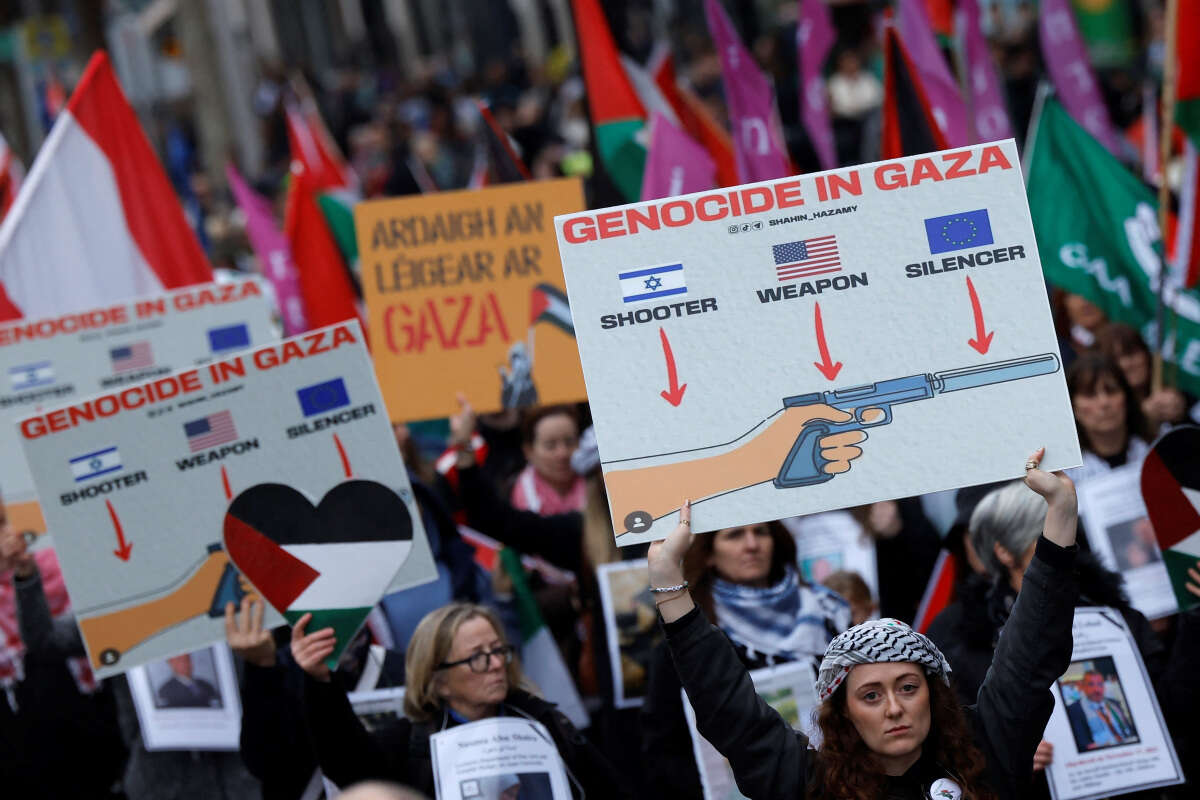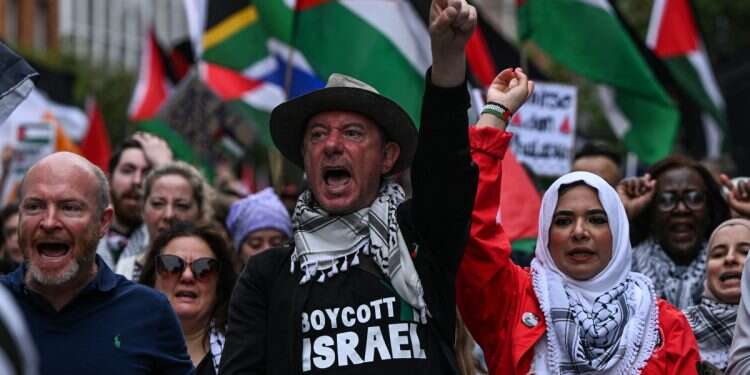"Ireland's position has been clear on this from day one. We want to see the release of all hostages, absolutely. We condemned the horrific terrorist attack by Hamas on Israel, a hundred percent, absolutely. A horrific terrorist attack," Simon Harris, the prime minister of Ireland, said last week.
A welcome remark, no?
But wait. In the very same press conference, he completely undercut this sentiment when he asked, "What about what Netanyahu is doing to the innocent children of Gaza?"

Of course, it is not Prime Minister Netanyahu who is harming the children of Gaza. Hamas started a war not only with the full knowledge that any war involves civilian casualties but also with the specific intent of exacerbating any such harm. As even the New York Times eventually reported, the Qassam Brigades "hide under residential neighborhoods, storing their weapons in miles of tunnels and in houses, mosques, sofas – even a child's bedroom – blurring the boundary between civilians and combatants." Netanyahu is not responsible for this.
To portray this war as though it is Netanyahu's actions, and not those of Hamas, that are hurting the children of Gaza is functionally, if not explicitly, to claim that Israel has no right to prosecute this war.
Harris' condemnation of the October 7, 2023 attack is not going to dissuade Hamas from attempting to make good on its promise to repeat it. Nor is his call for releasing the hostages likely to have any effect. Hamas is an international outlaw organization whose leaders are jihadists motivated by a fundamentalist, eliminationist religious fervor. Calls for them to change their course of action coming from the Irish Taoiseach, therefore, aren't going to have any effect on them.
Harris' comments came in response to the news that Israel plans to close its embassy in Ireland. The closure is a result of the Irish cabinet voting to join South Africa's case against Israel at the International Court of Justice, which puts forward the fabricated claim that Israel is committing genocide against the people of Gaza.
Ireland's Foreign Affairs Department is reported to have said, "By legally intervening in South Africa's case, Ireland will be asking the ICJ to broaden its interpretation of what constitutes the commission of genocide by a state." Just as Amnesty did, Ireland has implicitly admitted that the traditional definition of "genocide," does not apply, but seeks to change the definition in order to apply the label to Israel.
The intended result is to prevent Israel from completing its mission of eliminating the terror organization that wants to repeat the 10/7 attack. Ireland is condemning that attack, while simultaneously taking action to enable the next one. Its condemnation, therefore, is meaningless and hypocritical.
Prime Minister Harris' empty condemnation echoes that of international policy heavyweights Cynthia Nixon and Dua Lipa. In December of last year, Nixon, an actress and self-styled political activist, told The View, "Every time I speak on this, I say really loudly that the atrocities committed by Hamas, they're brutal, they're devastating, they're unforgivable, all people of conscience must condemn them," even as she demanded that Israel "cease fire." And in January, the singer Dua Lipa told Rolling Stone, "I feel so bad for every Israeli life lost and what happened on Oct. 7," just before signing an open letter demanding an immediate ceasefire.
It seems as though Taoiseach Harris was attempting to emulate these celebrities' crocodile tears. But those who oppose Israel's taking action to ensure that Hamas can't rebuild and attack again are merely being performative in their condemnations.
Karen Bekker is the assistant director of the Media Response Team at the Committee for Accuracy in Middle East Reporting in America (CAMERA), a media-monitoring, research, and membership organization devoted to promoting accurate and balanced coverage of Israel and the Middle East.




